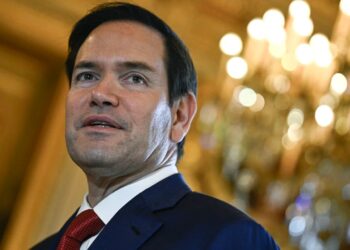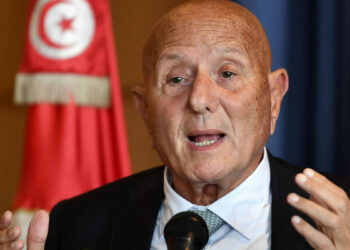Elon Musk’s Starlink has activated satellite broadband service in Iran after the United States allowed private companies to provide uncensored internet access to the country amid wide protests that have killed at least 40 people.
The open access to the internet comes after Starlink was activated in Ukraine earlier this year after telecom networks were disrupted by the Russian invasion.
Starlink is the first in a new generation of low Earth orbit satellite networks that are designed to provide high-bandwidth internet connections from space directly to individual users. Starlink users can bypass the country’s terrestrial communication networks, freeing them from Internet censorship.
However, a special station is needed to receive a signal from the Starlink constellation of satellites at an altitude of 500 km above Earth. Stations include a 20-inch plate shipped in a package the size of two pizza boxes stacked on top of each other.
Musk told the Financial Times last week that he was willing to operate Starlink in both Iran and Cuba if US sanctions against doing business in those countries were eased.
“Obviously the Iranian government will not approve of it,” Musk said of Starlink. It would require someone to buy a station and smuggle it to Iran, but they would take a risk because the government wouldn’t be happy with that.
In the week-long protests, 41 people have died so far. It erupted in Iran after a young woman died in custody for not wearing a headscarf, according to an “unofficial” figure broadcast on state television. Iranian authorities cut off access to Instagram and WhatsApp last week before the US Treasury announced the restrictions.
On Sunday, Karim Sadjadpour, a senior fellow at the Carnegie Endowment for International Peace, said on Twitter that Musk assured him that “Starlink is now operational in Iran.” “If anyone can get into terminals into Iran, they will work,” Musk added.
The US State Department on Friday eased sanctions that have prevented internet services and communications networks from operating in Iran.
Under the new guidelines, US tech companies can provide secure platforms and services within Iran without breaking out of the restrictions that normally prevent doing business with Iran. They will also allow the export of private satellite internet equipment, which could include Musk’s Starlink service.
A senior administration official said the National Security Council, the Treasury Department and other US officials spoke with Starlink to discuss providing the service in Tehran.
“We encourage all ways to expand and sustain Internet access in Iran,” the official said. “We broadly support the private sector that helps Iranians communicate and are taking our own steps to help.”
The US Treasury’s Office of Foreign Assets Control will also prioritize requests for specific licenses or permissions for Internet freedom-related businesses in Iran.
If SpaceX determines that certain activities targeting Iranians require a specific license, Ofac will welcome them and prioritize them. Along the same lines, if SpaceX determines that its activity is indeed licensed and has any questions, OFAC also welcomes such participation,” a State Department spokesperson said.
Former officials said Starlink’s activity in Iran may require additional permissions beyond those issued by the Treasury and State Department last Friday.

































